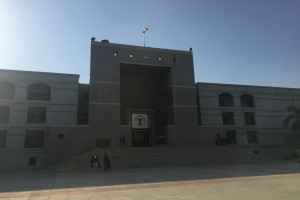Gujarat High Court: The present case being decided for a petition filed under Article 226 of the Constitution of India, for issuance of writ of ‘Habeas Corpus’, addressed by a bench comprising of Abhilasha Kumari and B.N. Karia, JJ.
The petition was filed by the ‘mother of the corpus’ with a prayer to issue directions to the respondents to produce her daughter before the Court, with the allegations that her daughter was illegally abducted and confined by the respondent with the aid of his brother and father, and also the petitioner was threatened to pay a ransom of Rs 5,00,000, failing which the respondent warned to sell her daughter.
Upon an advance copy of the petition being served, the police traced the corpus and the respondent and presented them before the Court, and the presiding Judge spoke to the ‘Corpus’ and the respondent in his chambers, where both of them did agree that the Corpus was not illegally abducted, and that she had voluntarily left her mother’s house as she was in love with the respondent and that their parents, of both the sides, were not ready to accept their marriage. Hence, since then, they have been in a live-in relationship. Also, both (the Corpus and the respondent) denied making any telephone calls to the petitioner for the alleged demand of ransom money.
After proper investigation, the Court observed that such averments of telephone call were introduced in the court to give more serious color to the matter. The Court held that since both (the corpus and the respondent) are adults and want to live together, it had no other option but to permit the corpus and the respondent to leave and live together. Accordingly, the Court disposed of the petition. [Ishmatara Sharafathussain Shaikh v. State of Gujarat, 2017 SCC OnLine Guj 1409, decided on 04.12.2017]

